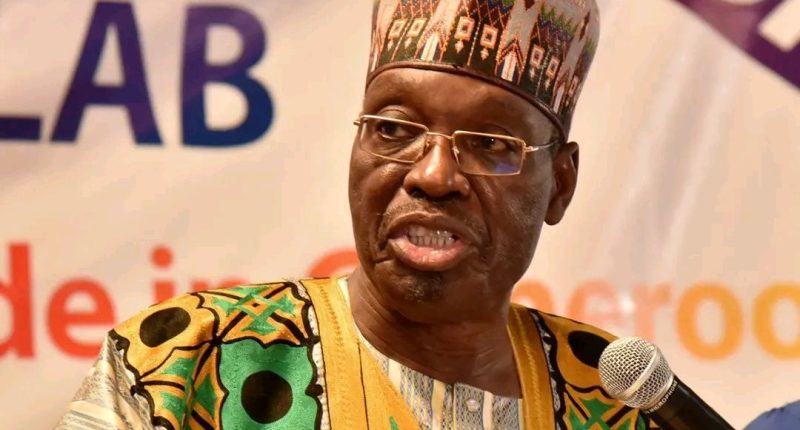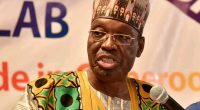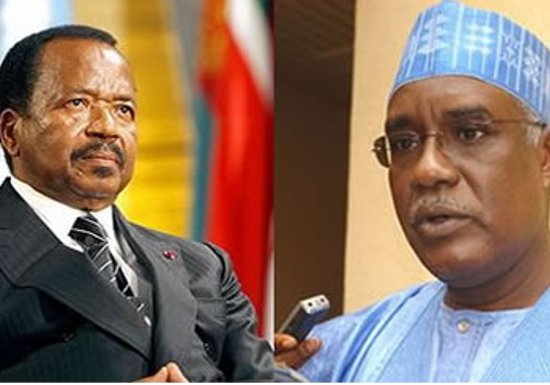“I Met Biya Once in 20 Years”: Issa Tchiroma’s Explosive Remarks Expose a Hollow Presidency
Yaoundé — In a revealing and unfiltered interview, former Minister of Communication and FSNC party leader Issa Tchiroma Bakary has delivered a damning critique of the Cameroonian presidency, exposing what he describes as a deeply dysfunctional and inaccessible leadership at the very top of the state.
Tchiroma, long viewed as a staunch defender of President Paul Biya and his regime, made the startling revelation that in over two decades of political service, he met the president in his office only once. According to Tchiroma, this lone encounter symbolizes the deep opacity surrounding the country’s decision-making apparatus and raises serious questions about governance, political engagement, and executive accountability in Cameroon.
“The president is invisible and unreachable,” Tchiroma said bluntly, painting a picture of a presidency cut off from its own ministers and the people it claims to serve.
While he acknowledged having met President Biya on foreign trips, Tchiroma was quick to clarify that these interactions were purely ceremonial, void of any substantive political exchange. His comments amount to more than personal frustration—they offer rare insight into how centralized yet aloof power has become under Biya’s rule.
A Regime Running on Autopilot?
Tchiroma’s remarks point to a presidency that appears increasingly paralyzed, especially during moments of national crisis. This critique holds particular weight coming from a man who once risked his political credibility to defend the regime. That someone of his stature is now speaking out reveals just how brittle and insular the system has become.
This sudden about-face is more than political posturing; it is also reflective of an unraveling regime struggling to justify its legitimacy. With the Ambazonian conflict festering in the English-speaking regions and the country’s youth growing more disillusioned by the day, the Biya government’s habit of ghost governance can no longer be shrugged off as mere style—it is strategic neglect.
Travel Ban: A Warning or an Admission?
Days before the interview surfaced, Tchiroma was barred from boarding a flight to Dakar, where he intended to visit the grave of Cameroon’s first president, Amadou Ahidjo. No formal explanation was given for the travel restriction—just a cryptic “order from above.” The government’s silence on the issue is deafening, hinting at an authoritarian reflex to suppress perceived disloyalty, even when cloaked in personal grief.
This move, if anything, underscores the paranoia at the heart of the regime. It suggests that even former allies are no longer trusted, particularly if they dare to step out of line or, worse, show signs of political ambition.
Eyes on 2025: Tchiroma the Candidate
Tchiroma has now declared his candidacy for the 2025 presidential election. His recent criticisms—and the state’s heavy-handed response—signal a break with the old guard and a risky shift into open opposition. The timing is no coincidence. By framing himself as a victim of the very system he once upheld, Tchiroma is attempting to rebrand: from regime apologist to reformist outsider.
Yet the question remains: Can someone so deeply embedded in Biya’s political machinery convincingly position himself as an agent of change? Or is this merely a tactical distancing in anticipation of Biya’s eventual political eclipse?
A Regime That Fears Its Own Reflection
Tchiroma’s story is not just about personal betrayal or political reawakening—it is a mirror held up to a regime that no longer trusts itself. In its brutal crackdown on dissent in Ambazonia, its hostility toward independent voices, and now its isolation of longtime insiders, the Biya government reveals a deeper crisis: it is waging war on accountability, even within its own ranks.
If even loyalists like Tchiroma are being silenced and grounded, then the regime’s fear is no longer about external threats—it is about survival.





